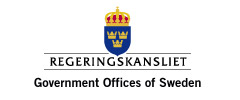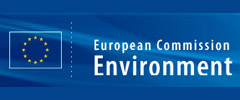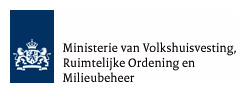The Copenhagen Accord - the way forward
Press Statement by the Women’s and Gender Constituency, Bonn, 10 April 2010
10.04.2010 |Chantal van den Bossche
Marine Franck, policy officer climate change, representing WECF at the Women and Gender Constituency at the UNFCCC in Bonn
The Women and Gender constituency was discouraged by the COP15 outcomes, but committed to action. WECF, WEDO, Life e.V and Gender CC organised a joint press conference in Bonn during the UNFCCC Climate Change Talks.
We are now in 2010 at the first climate change talks this year – dedicated to the process, which is indeed crucial as procedure and organization are held partly responsible for the failure of Copenhagen.
What to do with the Copenhagen Accord?
The Copenhagen Accord is not a legally binding agreement. With the voluntary engagements contracted by member states in the Copenhagen Accord, temperature would increase up to 4°C. Thus Copenhagen Accord doesn’t fulfill the objective to contain global increase of temperature into a 2 °C limit. . This is of course unacceptable as we know that the lives of millions of people are at stake, entire nations are expected to disappear under the ocean, and we urgently need the commitment to necessary measures for an equitable, just and legally binding post-Kyoto agreement to tackle climate change.
But, the Copenhagen Accord is still a political agreement, a steppingstone towards an ultimate goal of agreeing on a single and comprehensive legal document, which establishes an international framework with participation by all parties.
Thus, it can be considered as the guiding document to orientate the negotiations and it contains important elements which could serve as inputs to the negotiations and be translated into texts that could be incorporated in the negotiating text of the AWG-LCA, where appropriate. But lets be clear that the AWG-LCA documents are the basis for discussion, since these documents contain specific and relevant information that needs to be revisited.
What are the procedural and organizational weaknesses ?
Procedure and organization are held partly responsible for the failure of Copenhagen. Indeed, the method and means of negotiations have too often resulted in a slow and repeated circle, in which Parties continually restate positions, which are recaptured by the different Chairs. During the negotiations, delegates talk one after each other instead of responding to and taking into account other views, with a mutual, and good-faith, attempt to define common ground. Negotiators appear to have uncompromised mandates from their governments, making it hard for compromise. Consequently, there is no confidence between parties which have the feeling that the procedure doesn’t respect broad and equal participation of parties.
What are the solutions?
Having learned the hard lesson in Copenhagen, we need to avoid repeating the same mistakes by seriously focus on the way forward to achieving a just and equitable outcome in Mexico.
This is the purpose of this conference in Bonn to focuses on organizational matter in order to swiftly clearing procedural questions, and to prepare the ground for engaging into substantive discussions.
- In our opinion, states shall ensure that the negotiating process:
remains fully transparent, open, inclusive and efficient in delivering substantive outcomes.
respects and accede to principles of equity and common but differentiated responsibility
facilitate negotiations and the need to rebuild trust and confidence, credibility and legitimacy in the multilateral climate negotiating process for a constructive engagement.
WECF therefore calls for the following measures measures :
- Negotiations shall stay within the UNFCCC framework to ensure a multilateral process based on consensus and bottom up approach.
However, informal consultations are a necessity when substantive and critical differences remain. In fact, Mexico is currently conducting informal dialogues with various Parties to discuss their particular interests, informal consultations are also a necessity to prepare a summit. They help to build trust between Parties because informal small-group meetings encourage a frank exchange of views towards a common substantive position, and are necessary to address and resolve critical differences, rather than restate them.
However, the results of these meetings shall be communicated to other parties in order to ensure the inclusiveness and transparency of the process. - Two tracks negotiations: AWG-LCA and AWG-KP. In order to ensure an efficient negotiation process, balanced progress must be made on both negotiating tracks in a way that will lead to two separate and balanced outcomes.
- Draft texts shall be transmitted to parties at least 2 week before the beginning of sessions
Why is civil society crucial in the procedure and organization?
The Women and Gender Constituency calls for a strengthened involvement of civil society. Climate Change is the biggest challenge we face. We are all affected – so all the stakeholders have to be involved as it was written down in Rio in the Agenda 21. The involvement of civil society is crucial for a transparent, multilateral process , but also for a just and equitable outcome. Women are one of the most vulnerable communities to climate change.
In Copenhagen, civil society was more or less rejected from the negotiations, which also contributed to the failure. Civil society inputs enrich, diversify, and include new points of view in the process. As Costa Rica suggested (I quote), “the resources saved by the Secretariat from maintaining Bonn as the venue for the meetings, could be used to finance the participation of an extra delegate from civil society”. Civil society brings transparency to the process and could bring new solutions. Civil Society’s role is to make sure that the interests of all groups of society, and future generations are taken into account, to counterbalance the dominating economic interests. Thus, we call for all the negotiations to be opened to observers with some time for their interventions.
It is an important focus at a time when civil society tends to be expelled from the negotiation process. The USA said “ we suggest that the LCA Chair significantly reduce the number of discrete groups handling negotiating issues.” Saudi Arabia said “observer have to respect their observers position” Egypt deplored the fact that there was an informal meeting in febuary organized by an NGO.
The Women and Gender Constituency therefore call for an improvement of these procedural and organizational issues, in order to achieve the ultimate objective of the Convention which is the adoption of a comprehensive legally binding outcome in Cop 16 in Mexico in 2010, and to focus more on substantive discussions and avoid lengthy procedural discussions that could hinder progress in order to transfer words into acts and to ensure constructive negotiations so that states would be able to maintain the objective of keeping the global mean temperature increase not only below 2° C , but 1,5 degrees as it becomes more and more clear.
Conclusion
Climate impacts require urgent attention and treatment by all Parties, another failure is possible in Mexico and this is why procedural issues have to be taken seriously. Bonn is also a good way for delegation to get back in touch, after a disastrous Copenhagen. This conference is a first step, to move forward, an opportunity to rebuild trust and hope. Delegates and civil society have the capacity to create a clear consensus and tackle the climate change challenge. But we must do it together!
Related News
Meet the Winners of the Gender Just Climate Solutions Award at COP24
On the 70th anniversary of the Universal Declaration of Human Rights, we awarded Gender Just Climate Solutions Winners at the climate negotiations in Katowice, Poland
11.12.2018
Getting to the Future We Want
4-7 November, Brussels: European Environmental Bureau’s (EEB) Annual Conference
12.11.2018
What to expect from the climate talks that resumed in Bangkok this week?
COP24: second intersession of the climate change negotiations 2018, Bangkok, Thailand
07.09.2018
Application open for Gender Just Climate Solutions Award 2018!
WECF and partners invite you to participate in the 4th annual Gender Just Climate Solutions Awards
01.08.2018
Women and Gender Constituency Joint Statement On SB48
Real commitment to rights-based, gender-just solutions to climate change is imperative for the effective implementation of the Paris Agreement.
18.06.2018









































